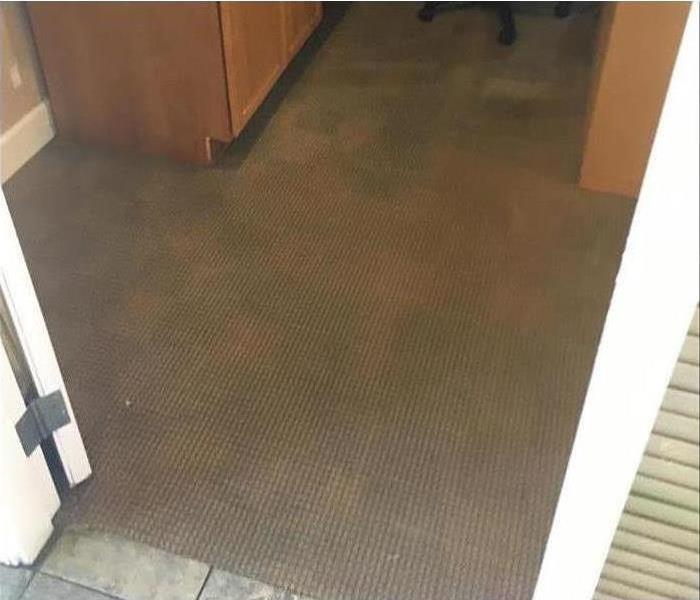After the Flood: Where Is That Smell Coming From?
8/27/2022 (Permalink)
Unpleasant Odors After A Flood
According to FEMA, 99% of counties in the U.S. suffered some impact from flooding between 1996 and 2019. Regardless of whether it comes from a malfunctioning toilet or a leaky roof, a flood has the potential to cause issues like mold growth and water damage. Cleaning up flood water can involve a great deal of time whether you do it yourself or employ the services of a professional cleanup service in Pleasanton, CA, so it can be annoying to observe a lingering odor even after the process.
There are three potential culprits for a smell that refuses to leave in the wake of an unexpected surge of water.
1. Mold and Mildew
FEMA states that mildew colonies (generally used to refer to a certain kind of flat mold growth) may begin to cling to and spread across damp surfaces within only 24 to 48 hours. The fungus produces chemical compounds while propagating that release an earthy, musty scent.
2. Bacteria
Flood water is separated into three categories for recovery and restoration purposes:
Clean water (Category 1)
Gray water (Category 2)
Black water (Category 3)
The latter two may carry substances like chemicals. Among their contents, bacteria often reside. These may emit bad odors like the rotten egg one commonly associated with sulfur or others or their breakdown of particles may lead to them. Even after all standing water is removed and everything dried, porous materials like carpeting may retain some of the microorganisms if not properly cleaned, causing the smell to permeate the room.
3. Sewage
Burst pipes are one of the most common reasons for flooding in a structure, and they often contain wastewater. Even if water comes from outside, it may have mixed with sewage loss from storm drains and garbage from the streets, particularly if it is overflow from a nearby body of water.
The best way to avoid unpleasant odors from mold growth and other things in floodwater is to disinfect all affected areas and surfaces thoroughly as soon as possible. Consulting a professional may also help.





 24/7 Emergency Service
24/7 Emergency Service